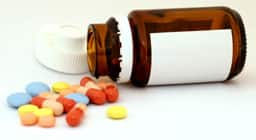London: A cheaper drug used to prevent blood clot formation during emergency heart attack treatment is more effective than its more popular and expensive counterpart.
Heparin could result in improved outcomes (such as a reduced rate of repeat heart attacks), compared to the other drug tested, bivalirudin, which is in widespread use in high-income countries and is around 400 times more expensive than heparin, a research showed.
The results of the HEAT-PPCI trial suggest that systematic use of heparin rather than bivalirudin after primary percutaneous coronary intervention (PPCI) - the most commonly used treatment for heart attack, which unblocks the arteries carrying blood to the heart - could save health services substantial sums of money, at the same time as potentially improving patient outcomes.
"As far as we are aware, our study is one of the first trials to recruit 100 percent of eligible patients presenting with the medical condition being examined, which means that it more closely resembles real life practice than many previous trials," said lead author Rod Stables of the Liverpool Heart and Chest Hospital NHS Foundation Trust in Britain.
The trial involved 1,829 patients undergoing emergency angiography (an x-ray examination of the heart's arteries after a suspected heart attack).
More than four-fifths of these patients then went on to receive PPCI; approximately half received heparin, and half received bivalirudin.
Overall rates of major adverse cardiac events were significantly lower in the group who received heparin, although the rates of adverse events were low, as expected, in both groups.
The study appeared in journal The Lancet.
















